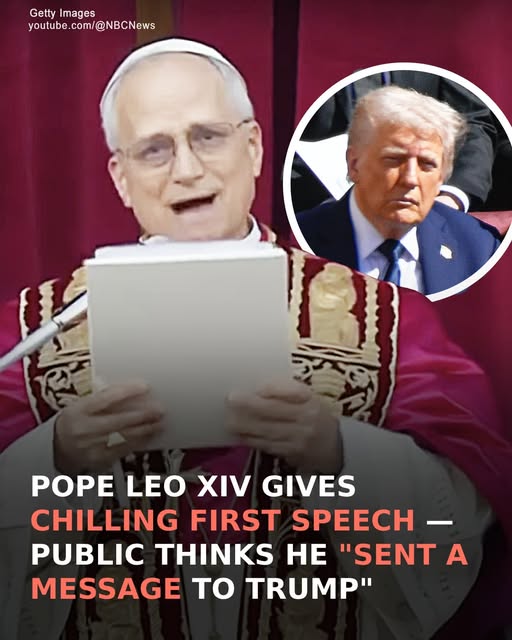Pope Leo XIV’s election marked a monumental moment in the history of the Catholic Church, not only because of his groundbreaking role as the first American pope but also because of the deep symbolism his papacy carries. The American heritage of the new pope has captured the attention of both believers and non-believers alike, symbolizing a new phase in the Church’s approach to global leadership. As the 267th pope, his journey reflects the increasing role of the Americas in shaping the future of the Catholic Church, which has always been a global institution.
In his first address from the iconic St. Peter’s Basilica balcony, Pope Leo XIV focused heavily on the need for unity, especially within a world divided by conflict, ideological differences, and social divisions. His message of peace and unity was not just directed towards the faithful but was also a call to all people of good will, regardless of faith. His words about the importance of love, reconciliation, and collaboration extended a powerful invitation for people everywhere to work toward a common good. This inclusivity, rooted in shared human dignity, resonates across many communities globally, signaling a desire for healing in a fractured world.
Throughout his message, Pope Leo XIV spoke with humility and clarity, qualities that many believe will define his papacy. He specifically mentioned his past experiences as a bishop in Peru, underscoring his deep connection to the people he served and his commitment to a pastoral approach. His vision of a Church that embraces all peoples, especially the marginalized, offers a refreshing outlook on the future of Catholicism. The pope’s emphasis on a mission-driven Church suggests that under his leadership, the Church will prioritize its outreach efforts and work toward a more inclusive and compassionate future.
The Pope’s reference to Saint Augustine further highlighted his theological foundation, showing that his papacy will likely focus on pastoral care and inclusivity. His vision of a Church committed to serving those in need, while staying true to the doctrines of the faith, promises to be a cornerstone of his leadership. The pope’s call for dialogue within the Church and the world reflects a broader desire to create spaces for healing and understanding, particularly amid the challenges of modern society.
As Pope Leo XIV concluded his remarks, he invited the faithful to join him in prayer on the Feast of the Supplication to Our Lady of Pompeii, focusing on peace. This invocation was not just symbolic; it represented a tangible hope for unity and reconciliation within the global community. The pope’s prayer for peace during such turbulent times will likely define his leadership as one that continually strives to bring people together, regardless of their background, nationality, or religion.
In the aftermath of his election, many expressed a sense of optimism, seeing in Pope Leo XIV a beacon of hope. Social media and other platforms have been abuzz with messages of support, reflecting a wide array of emotions: excitement, anticipation, and faith in the promise of change. Many are hopeful that his papacy will herald a shift toward a more inclusive and compassionate Church that actively engages with the global community, especially the marginalized and oppressed.
In conclusion, Pope Leo XIV’s election marks the beginning of a new chapter in the Catholic Church, one that is poised to focus on unity, inclusivity, and peace. His approach to leadership appears rooted in the principles of dialogue, compassion, and service to others. As the world looks to him for guidance, it is clear that his papacy will prioritize not only the faithful but also the broader human family, creating a legacy of collaboration, healing, and mutual understanding.
